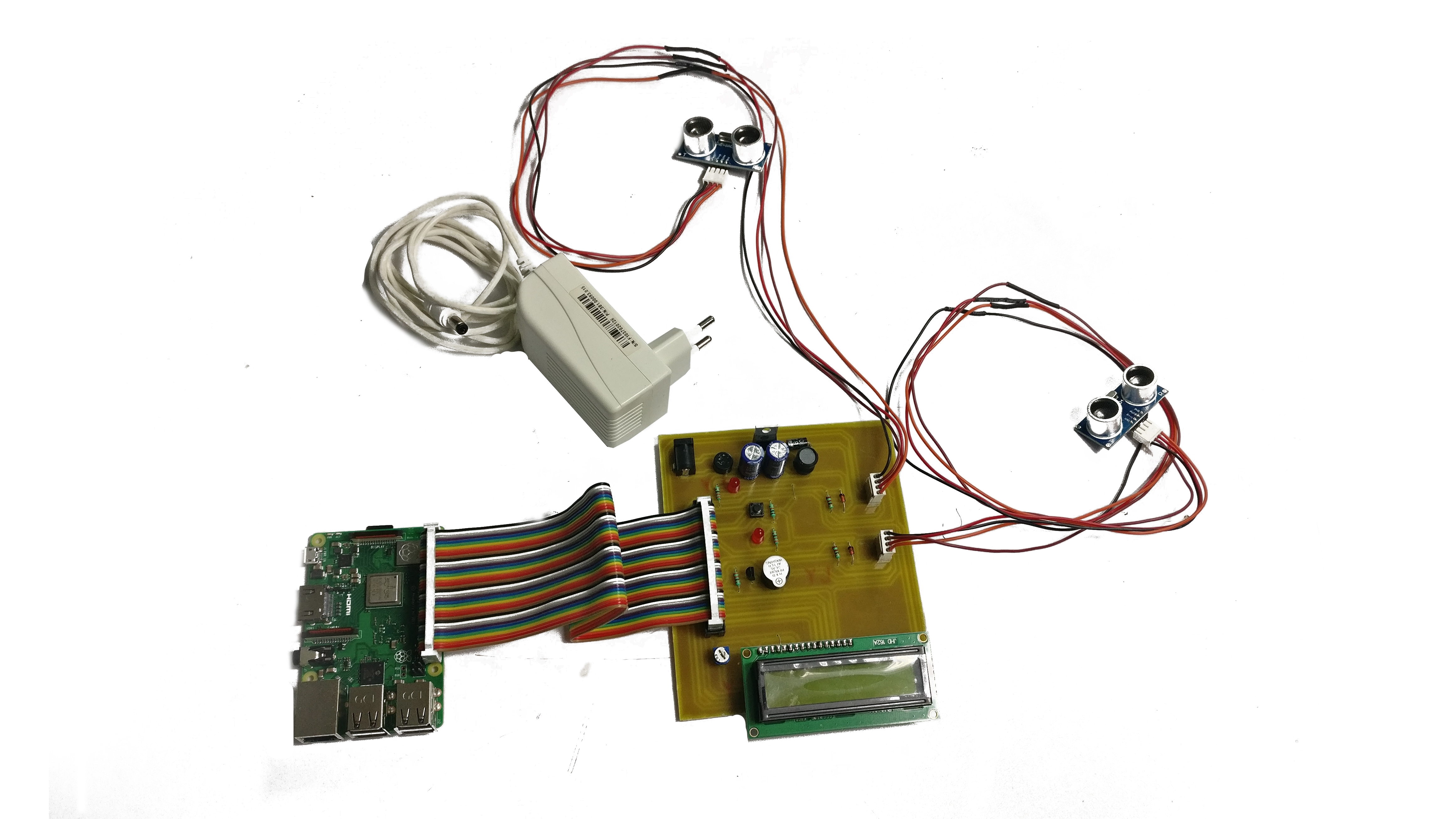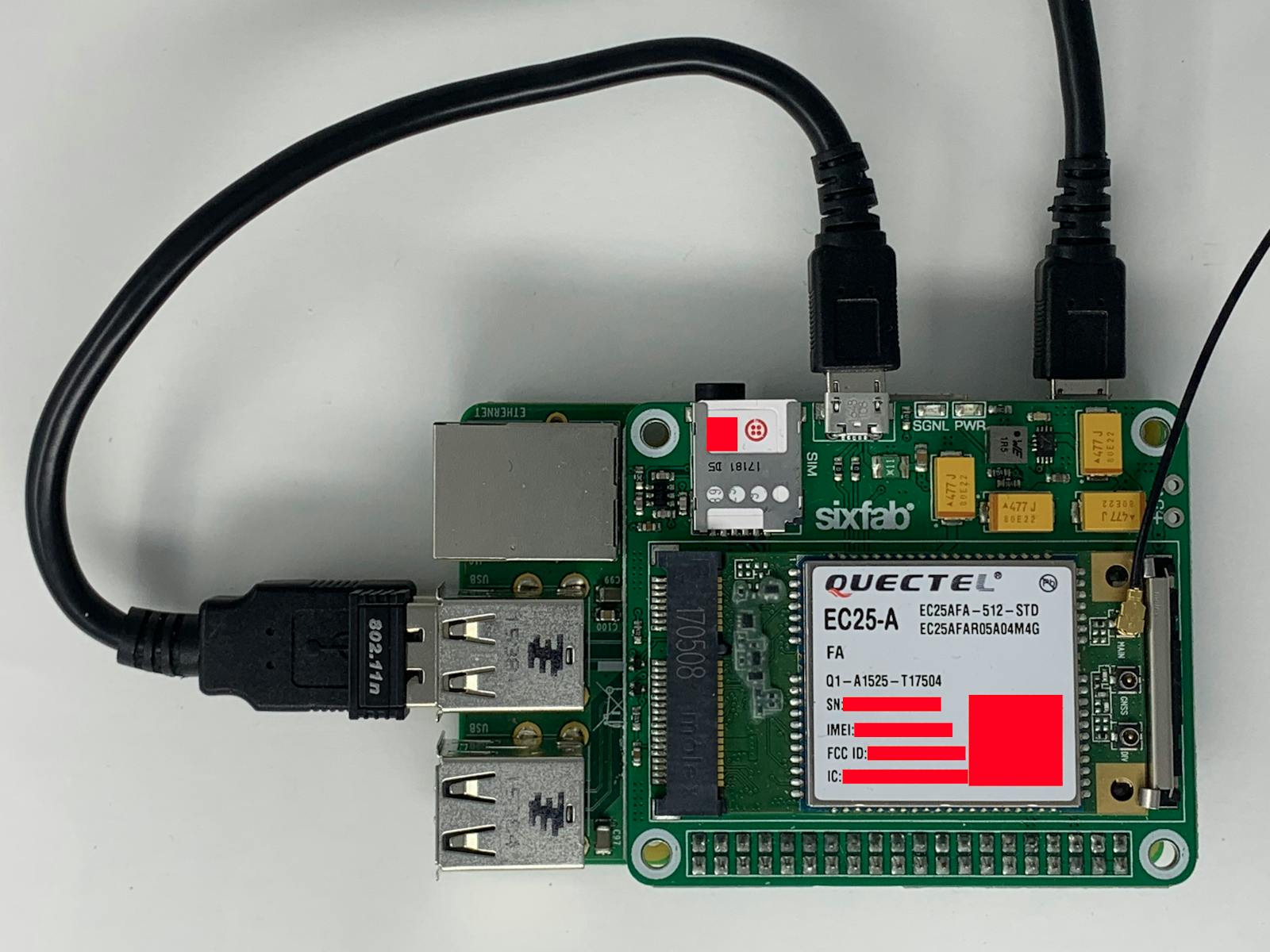Best SSH IoT Anywhere For Raspberry Pi: Unlocking Seamless Connectivity
Are you tired of dealing with complicated setups just to connect your Raspberry Pi to the internet? Well, buckle up because today we're diving deep into the world of SSH IoT solutions designed specifically for Raspberry Pi. Whether you're a tech enthusiast, a hobbyist, or a professional developer, this guide will show you how to unlock the full potential of your Raspberry Pi with the best SSH IoT solutions available.
Imagine being able to control your smart home devices, monitor remote sensors, or even manage industrial equipment from anywhere in the world. That's the power of SSH IoT for Raspberry Pi. But with so many options out there, it can be overwhelming to choose the right one. Don't worry, we've got you covered. In this article, we'll break down everything you need to know to make an informed decision.
From setting up your Raspberry Pi to exploring advanced SSH configurations, we'll guide you through each step with practical tips and expert advice. So, whether you're a beginner or an experienced user, you'll find something valuable here. Let's get started!
- Akiyama Family Pepper The Spicy Saga You Need To Know
- Aloce Rosenblum Onlyfans Leak The Truth Behind The Viral Storm
Why SSH IoT is a Game-Changer for Raspberry Pi
SSH IoT is more than just a buzzword; it's a powerful tool that opens up endless possibilities for your Raspberry Pi projects. By combining the robustness of SSH (Secure Shell) with the flexibility of IoT (Internet of Things), you can create secure, scalable, and reliable systems that work seamlessly across different environments.
Here are some reasons why SSH IoT stands out:
- Security: SSH ensures that your data is encrypted and protected from unauthorized access.
- Accessibility: With SSH IoT, you can remotely access your Raspberry Pi from anywhere in the world.
- Scalability: Whether you're managing a single device or a network of hundreds, SSH IoT can handle it all.
- Compatibility: SSH works across multiple platforms, making it an ideal choice for cross-platform projects.
Now that you know why SSH IoT is a must-have for Raspberry Pi, let's explore the top solutions available.
- Camilla Araujos Job On Onlyfans A Comprehensive Guide
- Sundarikanya A Digital Haven Of Art Culture And Innovation
Top 5 Best SSH IoT Solutions for Raspberry Pi
1. ngrok
ngrok is a popular choice for developers looking to expose local servers to the internet securely. With its easy-to-use interface and powerful features, ngrok makes it simple to set up SSH tunnels for your Raspberry Pi projects.
Key Features:
- Secure tunnels with TLS encryption.
- Customizable subdomains for easier access.
- Support for multiple protocols, including HTTP and SSH.
2. PageKite
PageKite is another excellent option for creating public-facing SSH connections. It's open-source, meaning you can modify and extend its functionality to suit your needs.
Why Choose PageKite?
- Free and open-source software.
- Supports both SSH and web services.
- Easy to set up and configure.
3. LocalTunnel
If you're looking for a lightweight solution, LocalTunnel is worth considering. It's designed to quickly expose local servers to the internet, making it perfect for testing and development purposes.
Pros:
- Simple and straightforward setup.
- No registration required.
- Perfect for quick testing and debugging.
4. Serveo
Serveo is a free SSH tunneling service that allows you to expose local services to the internet. It's easy to use and doesn't require any additional software installations.
Benefits:
- Free and unlimited usage.
- Supports both SSH and HTTPS protocols.
- No account registration needed.
5. ZeroTier
ZeroTier takes a slightly different approach by creating virtual networks that connect devices over the internet. It's a great option if you need to manage multiple Raspberry Pi devices in a centralized network.
Highlights:
- Virtual networking with advanced security features.
- Supports multiple platforms, including Raspberry Pi.
- Easy-to-use web-based management console.
Setting Up SSH on Your Raspberry Pi
Before diving into SSH IoT solutions, let's first ensure that SSH is properly configured on your Raspberry Pi. Follow these steps to get started:
- Enable SSH on your Raspberry Pi by navigating to the Raspberry Pi Configuration tool.
- Generate SSH keys using the
ssh-keygencommand. - Copy your public key to the Raspberry Pi using the
ssh-copy-idcommand. - Test the connection by logging in remotely using the
sshcommand.
Once SSH is set up, you're ready to explore the world of IoT connectivity.
Choosing the Right SSH IoT Solution
With so many options available, choosing the right SSH IoT solution can be a daunting task. Here are some factors to consider when making your decision:
- Security: Ensure that the solution offers robust encryption and authentication mechanisms.
- Scalability: Choose a solution that can grow with your project as your needs expand.
- Compatibility: Make sure the solution works seamlessly with your existing infrastructure.
- Support: Look for solutions with active communities and reliable customer support.
By evaluating these factors, you can find the best SSH IoT solution for your Raspberry Pi projects.
Best Practices for SSH IoT on Raspberry Pi
To get the most out of your SSH IoT setup, here are some best practices to follow:
- Always use strong, unique passwords for your SSH connections.
- Enable two-factor authentication (2FA) whenever possible.
- Regularly update your Raspberry Pi's firmware and software.
- Limit access to trusted IP addresses using firewall rules.
By adhering to these practices, you can ensure the security and reliability of your SSH IoT setup.
Real-World Applications of SSH IoT for Raspberry Pi
SSH IoT isn't just theoretical; it has practical applications in various industries. Here are some real-world examples:
- Smart Home Automation: Control lighting, temperature, and security systems remotely.
- Remote Monitoring: Monitor environmental sensors in agriculture or industrial settings.
- Industrial IoT: Manage and maintain equipment in manufacturing facilities.
- Research and Development: Conduct experiments and gather data from remote locations.
These applications demonstrate the versatility and power of SSH IoT for Raspberry Pi.
Troubleshooting Common SSH IoT Issues
Even with the best solutions, issues can arise. Here are some common problems and their solutions:
- Connection Timeout: Check your network settings and ensure that ports are open.
- Authentication Failed: Verify that your SSH keys are correctly configured.
- Slow Performance: Optimize your network and reduce unnecessary traffic.
By addressing these issues promptly, you can maintain a stable and efficient SSH IoT setup.
Future Trends in SSH IoT for Raspberry Pi
As technology continues to evolve, so does the landscape of SSH IoT for Raspberry Pi. Here are some trends to watch out for:
- Edge Computing: Processing data closer to the source for faster insights.
- AI Integration: Incorporating artificial intelligence to enhance IoT capabilities.
- 5G Connectivity: Leveraging high-speed networks for seamless communication.
Staying ahead of these trends will help you stay competitive in the ever-changing world of IoT.
Conclusion: Take Your Raspberry Pi Projects to the Next Level
In conclusion, SSH IoT offers unparalleled opportunities for Raspberry Pi users. From remote access to advanced networking, the possibilities are endless. By choosing the right solution and following best practices, you can unlock the full potential of your Raspberry Pi projects.
So, what are you waiting for? Dive into the world of SSH IoT and take your Raspberry Pi to the next level. Don't forget to share your experiences in the comments below and check out our other articles for more tips and tricks!
Table of Contents
- Best SSH IoT Anywhere for Raspberry Pi: Unlocking Seamless Connectivity
- Why SSH IoT is a Game-Changer for Raspberry Pi
- Top 5 Best SSH IoT Solutions for Raspberry Pi
- ngrok
- PageKite
- LocalTunnel
- Serveo
- ZeroTier
- Setting Up SSH on Your Raspberry Pi
- Choosing the Right SSH IoT Solution
- Best Practices for SSH IoT on Raspberry Pi
- Real-World Applications of SSH IoT for Raspberry Pi
- Troubleshooting Common SSH IoT Issues
- Future Trends in SSH IoT for Raspberry Pi
- Conclusion: Take Your Raspberry Pi Projects to the Next Level



Detail Author:
- Name : Kitty Zulauf
- Username : donnie05
- Email : herzog.raven@mclaughlin.com
- Birthdate : 1990-12-25
- Address : 329 Jaleel Ridge North Ashlee, ID 03526
- Phone : 417.751.4182
- Company : Cummings PLC
- Job : Preschool Teacher
- Bio : Commodi omnis fuga recusandae illum ea maiores. Accusamus quidem non assumenda vitae fugit quae vel sit. Esse quidem sit animi non sint aut.
Socials
tiktok:
- url : https://tiktok.com/@alysa_upton
- username : alysa_upton
- bio : Aliquid non numquam omnis soluta earum unde non.
- followers : 6823
- following : 1531
twitter:
- url : https://twitter.com/alysa_real
- username : alysa_real
- bio : Veritatis animi aut aliquam velit nulla itaque. Nihil autem reprehenderit iusto. Voluptatibus tempora sunt sit aut non.
- followers : 1305
- following : 1405
linkedin:
- url : https://linkedin.com/in/alysaupton
- username : alysaupton
- bio : Dolores commodi culpa a nesciunt.
- followers : 3897
- following : 879
facebook:
- url : https://facebook.com/alysa_upton
- username : alysa_upton
- bio : Quasi a impedit non nobis enim. Sunt perferendis et nostrum.
- followers : 394
- following : 735
instagram:
- url : https://instagram.com/upton1986
- username : upton1986
- bio : Minus dicta voluptatem cupiditate. Neque dolores est at consequatur et quo.
- followers : 3506
- following : 569